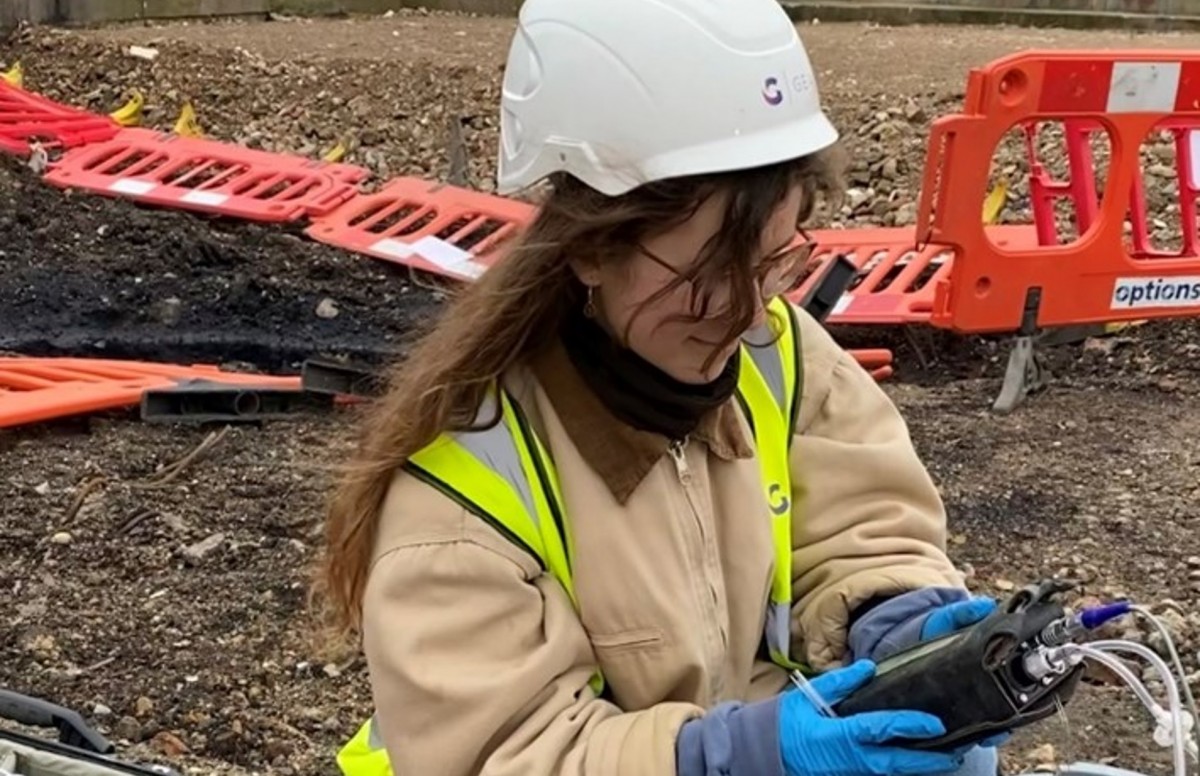Little Known Facts About Geotheta.
Little Known Facts About Geotheta.
Blog Article
The 10-Second Trick For Geotheta
Table of ContentsThe Facts About Geotheta UncoveredExcitement About GeothetaThe 5-Second Trick For GeothetaEverything about GeothetaGeotheta Things To Know Before You Buy

They conduct website examinations, accumulate samples, perform research laboratory tests, and examine information to evaluate the suitability of the ground for construction jobs - Geotechnical Engineers. Based upon their findings, geotechnical designers give suggestions for structure layout, incline stability, retaining structures, and reduction of geotechnical hazards. They collaborate with other specialists, such as engineers, architectural designers, and construction teams, to make certain that geotechnical considerations are incorporated right into the overall project layout and implementation
By examining the actions and homes of dirt and rock, they can determine prospective geotechnical hazards such as landslides, soil negotiation, or slope instability. Their knowledge aids prevent failings or crashes that could endanger lives and home. Here are some thorough tasks and duties of a geotechnical designer: Website Investigation: Geotechnical engineers conduct site investigations to gather information on subsurface conditions.
They translate the information to comprehend the properties and behavior of the dirt and rock, including their toughness, permeability, compaction attributes, and groundwater conditions. Geotechnical Evaluation and Style: Geotechnical designers evaluate the information accumulated throughout site investigations to examine the security and viability of the site for building projects. They do geotechnical calculations and modeling to examine variables such as birthing capability, negotiation, incline stability, lateral planet pressures, and groundwater flow.
Some Known Details About Geotheta
Foundation Layout: Geotechnical engineers play a critical role in developing structures that can safely support the designated structure. They examine the dirt problems and tons demands to identify the proper structure kind, such as superficial structures (e.g., grounds), deep foundations (e.g (https://experiment.com/users/geotheta)., heaps), or specialized techniques like dirt enhancement. They consider factors such as negotiation restrictions, birthing ability, and soil-structure interaction to create ideal foundation layouts
They assess building strategies, display site tasks, and conduct field inspections to validate that the style recommendations are followed. If unanticipated geotechnical issues arise, they examine the circumstance and supply referrals for remediation or adjustments to the style. Risk Evaluation and Mitigation: Geotechnical engineers evaluate geotechnical risks and risks connected with the project site, such as landslides, liquefaction, or soil erosion.

Cooperation and Interaction: Geotechnical engineers work carefully with other specialists associated with a task, such as architects, structural engineers, and construction groups. Efficient interaction and cooperation are important to incorporate geotechnical considerations right into the overall task layout and construction procedure. Geotechnical engineers offer technical expertise, response queries, and guarantee that geotechnical needs are met.
The Buzz on Geotheta
Below are some kinds of geotechnical engineers: Structure Designer: Structure engineers concentrate on making and analyzing foundations for frameworks. They analyze the soil problems, tons requirements, and site characteristics to identify the most ideal foundation kind and layout, such as shallow structures, deep foundations, or specialized techniques like pile structures.
They evaluate the factors influencing incline security, such as soil properties, groundwater conditions, and incline geometry, and create strategies to prevent incline failings and alleviate dangers. Earthquake Designer: Earthquake engineers specialize in assessing and developing structures to withstand seismic pressures. They analyze the seismic danger of a website, examine dirt liquefaction potential, and develop seismic style criteria to guarantee the security and strength of frameworks during earthquakes.
They execute area testing, accumulate examples, and analyze the collected data to define the soil homes, geologic formations, and groundwater conditions at a site. Geotechnical Instrumentation Engineer: Geotechnical instrumentation engineers focus on monitoring and measuring the actions of dirt, rock, and frameworks. They set up and keep instrumentation systems that keep an eye on elements such as soil negotiation, groundwater degrees, incline movements, and structural displacements to evaluate efficiency and give very early warnings of prospective issues.
The Of Geotheta
They conduct tests such as triaxial tests, consolidation tests, straight shear tests, and permeability tests to collect data for geotechnical evaluation and style. Geosynthetics Designer: Geosynthetics engineers focus on the design and application of geosynthetic products, such as geotextiles, geogrids, and geomembranes. They utilize these products to boost dirt security, strengthen inclines, give water drainage solutions, and control erosion.
They have a tendency to be investigative individuals, which suggests they're intellectual, introspective, and curious. They are curious, systematic, logical, logical, and rational. A few of them are additionally social, implying they're kind, generous, cooperative, individual, caring, useful, compassionate, skillful, and pleasant. Does this noise like you? Take our cost-free career examination to learn if geotechnical designer is just one of your leading career suits.
In the office setting, geotechnical designers utilize specialized software application tools to perform computations, create layouts, and evaluate data. They prepare records, testimonial project requirements, communicate with customers and team participants, and coordinate project activities. The workplace setting offers a helpful setting for research, evaluation, and cooperation with various other specialists included in the project.
Geotheta - The Facts
They frequently visit job websites to perform site investigations, assess geotechnical problems, and collect data for evaluation. These gos to include traveling to various areas, often in remote or tough terrains. Geotechnical address engineers may do soil tasting, conduct tests, and monitor construction activities to guarantee that the geotechnical elements of the task are being executed appropriately.
Geotechnical engineers additionally function in specialized geotechnical labs. Geotechnical laboratory designers function extensively in these settings, managing testing devices, operating instruments, and tape-recording data.
Report this page